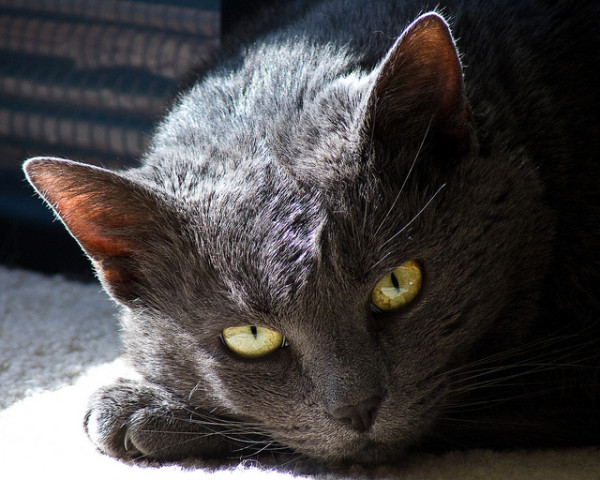How to tell if a cat has worms
When purchasing a kitten, you must remember that he needs care and regular treatment for fleas, ticks and worms... And it doesn't matter if your pet walks down the street or lives mostly at home. Helminth eggs can be found anywhere: in water, in soil, in a flower pot with earth, and a person can also bring these eggs from the street on his shoes.
Content
Symptoms of worms in cats 
There are a lot of varieties of helminths, they are flat and round. Tape parasites and fluke flukes belong to the flat. Round ones are toxocara, roundworm, nematodes and hookworm.
The reasons for the appearance of these parasites are very different: the presence of fleas or eaters in cats, the consumption of raw fish or meat, communication with worm animals, kittens can become infected from a sick mother.
It is not always possible to immediately understand that a cat has been attacked by parasites. Indeed, many symptoms are similar to the symptoms of other diseases and problems, which is why, in case of any doubt, it is better to contact a veterinary clinic to a specialist.
The most basic signs of the presence of helminths:
- violation of appetite, the animal refuses any food, or begins to consume food in large quantities, while remaining at its own weight or losing weight;
- constipation and diarrhea with constant frequency;
- nausea and vomiting;
- yellow tint of mucous membranes;
- enlarged liver, swollen tummy;
- at kittens there may be signs of anemia;
- itching and hair loss around the anus;
- coat problems, shedding, dullness;
- skin rash;
- discharge from the eyes and nose;
- the presence of eggs, larvae, adult worms and their parts in feces;
- bloody and purulent blotches in cat feces;
- kittens may lag behind in development, be sad and tired;
- in an advanced stage, a pregnant cat may experience early labor or miscarriage;
- in some cats in advanced disease, paralysis of the hind legs may occur;
- lowering the immune system;
- fatigue, refusal to play, caress.
Treatment of worms in cats 
If you find parasites in your furry pet, then you should immediately take all the necessary measures. To get started, go through an examination with a veterinarian, consult about medications. You can find out how to deworm a pet and from the breeder from whom you bought the kitten... Veterinary pharmacies have a wide selection of a wide variety of drugs.
There are also preparations for kittens, for pregnant women cats... After choosing a medicine, carefully study the annotation: how many times to give, what dosage and how to calculate it by the weight of the cat. If you ignore all the prescriptions, you can poison your pet. The drugs can be in suspension, drops and tablets. You need to choose what suits your pet.
Popular medications for cats:
- Milbemax;
- Pirantel;
- Drontal;
- Prosite;
- Pratel;
- Prazicide.
Before you start treating a cat, you need to treat it from fleas and other external parasites so that the treatment for worms is most effective. After that, you can safely give anthelmintic medicine to your pet. For best results, repeat the procedure no later than two weeks later. If the pet is very sick, then the treatment will have to be extended.
There are several contraindications when it is not recommended to treat an animal:
- lactating and pregnant cats;
- very small kittens;
- if the cat is old, then it is better to consult a specialist;
- with a viral and infectious disease, with a depleted and weakened body.
How to give a cat a worm pill 
Helminth tablets are bitter and taste unpleasant for cats. Therefore, they are unlikely to agree to just eat a pill. In this case, you need to crush the required dose of the medicine into powder and add it to feed, porridge, and canned meat. You can mix the powder with minced meat or chicken.
Small kittens, and adult cats too, can be given medicine with a syringe without a needle. The powder is mixed with a small amount of clean water and injected into the animal's mouth with a syringe. A special syringe is sold with some tablets to squeeze out the pills. The tablet is fixed in a syringe, it is placed in the cat's mouth closer to the root of the tongue and the tablet is pushed out by pressing. The mouth is then closed and held until the medicine is swallowed. This can be repeated with your hands.
Prevention of worms in cats
In order not to expose the pet to such problems, it is necessary to carry out treatment for worms once a quarter. It is best to alternate medications to avoid addiction to the components. It is also recommended to worm cats 1-2 weeks before vaccinations and mating.
In addition to medicinal effects, the following rules must be followed:
- prevent your cat from communicating with sick animals;
- do not give raw meat and fish, especially river fish;
- thoroughly and regularly wash the cat's bowl, process the pot and the floors;
- wash shoes immediately after coming home, or put them in a locker;
- the cat's diet should be of high-quality food, fresh products.


